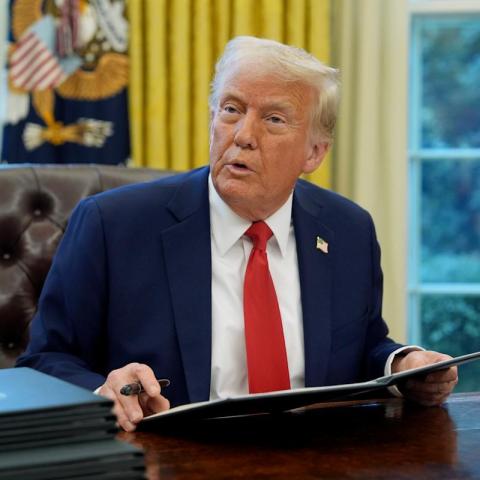President Donald Trump’s recent tariff announcement raised eyebrows, especially since it came on a Saturday. The U.S. will impose a hefty 30% tariff on goods imported from the European Union and Mexico. Some are scratching their heads about why Trump chose to unveil this news during the weekend, traditionally a time for rest.
One theory is that he wanted to prevent immediate reactions from the stock market. After all, the EU and Mexico were the U.S.’s top two trade partners in 2024, and making announcements while markets are closed could mitigate backlash. Interestingly, Trump claimed that these tariffs have been well-received, referencing a recent stock market high. However, as JPMorgan Chase CEO Jamie Dimon noted, investors might be getting used to tariff news, leading to a “complacency in the markets.”
There’s another angle to consider: The timing may have been an intentional slight to European leaders. For many Europeans, working on weekends is frowned upon, making this announcement even more provocative.
The large tariffs come on the heels of mentions of a favorable deal, which many were optimistic about. Instead, this sudden shift in strategy might stir tensions. It’s clear that no matter the reason, the announcement has created waves—leaving many wondering what’s next.
Key Takeaways
- Tariffs Overview: The U.S. is implementing a 30% tariff on imports from the EU and Mexico.
- Market Reaction: U.S. stock futures slipped after the announcement, reflecting investor anxiety.
- Potential Impact: Opinions from financial experts suggest that ongoing tariff conversations could affect international relations significantly. For example, recent reports show that over the last decade, Europe’s economic share relative to the U.S. has declined significantly, falling from 90% of U.S. GDP to just 65%.
In the broader context, tensions aren’t just limited to the U.S. and its closest partners. Recently, EU relations with China have also soured. After the EU placed restrictions on Chinese companies in medical fields, China retaliated with import curbs on EU products. According to Marc Julienne, director at the Center of Asian Studies in France, EU-China trade relations are currently “quite poor.”
As the global economy navigates these turbulent waters, it’s crucial to observe how these tariffs and international dynamics will unfold in the coming months.
For authoritative insights on tariff impacts, you can learn more in articles from sources like CNBC or Reuters.
Source link
Trade,Goldman Sachs Group Inc,JPMorgan Chase & Co,Howard Lutnick,Foreign policy,Donald Trump,United States,Markets,World Markets,business news






















